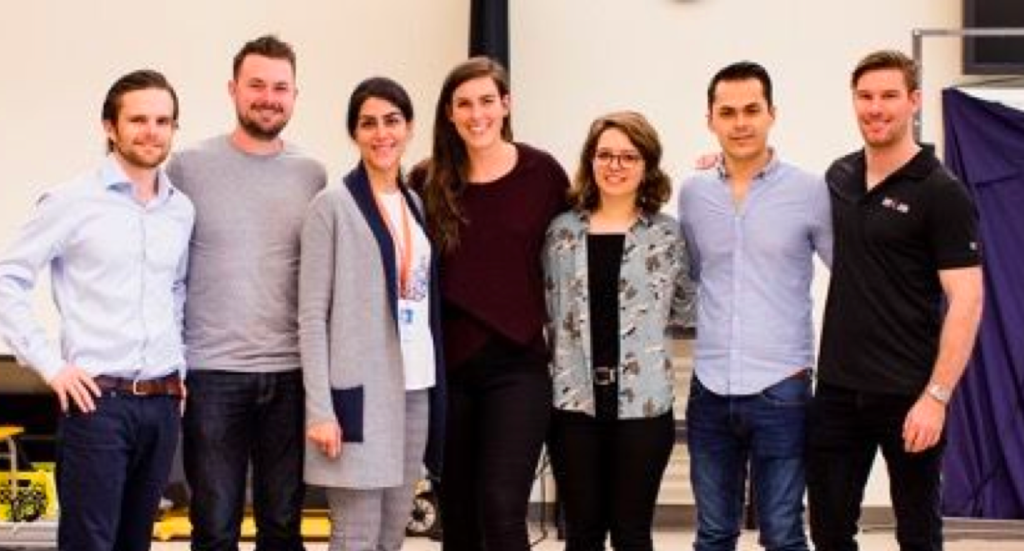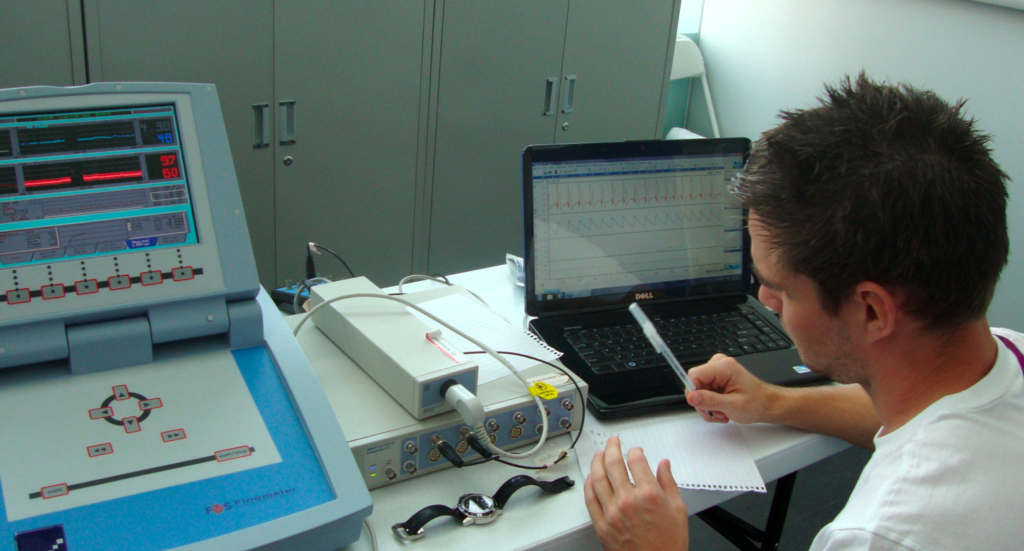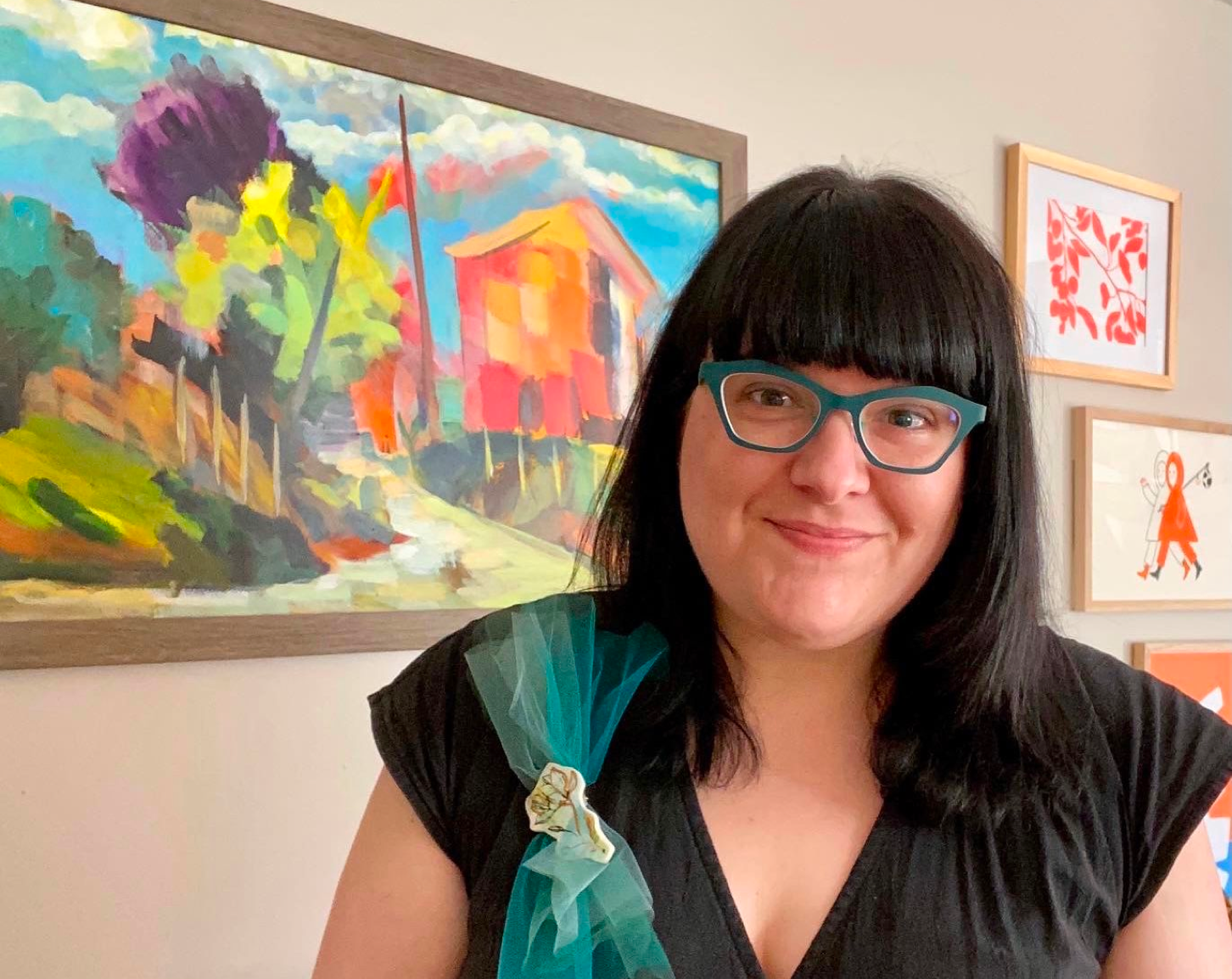A 20-year journey of health research in BC: Partnering to invest in BC’s researchers, teams and networks
22 September 2021

Bill Barrable (CEO, Praxis Spinal Cord Institute) and Dr. Wolfram Tetzlaff (Director, ICORD)
Partnering to invest in BC’s researchers, teams and networks to improve outcomes for patients with spinal cord injuries
For over 15 years, MSFHR, Praxis Spinal Cord Institute (formerly the Rick Hansen Institute) and the International Collaboration on Repair Discoveries (ICORD, supported by UBC Faculties of Medicine and Science and the Vancouver Coastal Health Research Institute) have partnered to support health researchers in the province. These researchers have collectively revolutionized the field of spinal cord research and created an informal research hub that has improved the lives of patients with spinal cord injury (SCI).
It’s a powerful testament to the legacy of Dr. Michael Smith who hoped to create an environment in BC where young researchers could thrive and deliver scientific evidence for new technologies and therapeutics to improve health outcomes in the province.
Praxis Spinal Cord Institute CEO and founding MSFHR Board Chair Bill Barrable shares: “It takes not only individual skills, but the right teams, networks and enough investment to successfully translate research into practice.” In the SCI research field, this knowledge can greatly improve the quality of life for patients experiencing loss of function, such as paralysis. And, with an estimated 86,000 people in Canada and millions more worldwide affected by spinal cord injuries, helping researchers turn their research into clinical practice is much needed.

Praxis began making partnered investments with MSFHR in 2006, through an MSFHR/Praxis Research Trainee Award for Dr. Andrew Gaudet, who investigated the regeneration of a protein to better understand functional recovery following an injury to the peripheral nerve or spinal cord. In the years that followed, MSFHR and Praxis partnered on four more Research Trainee Awards (two co-funded with ICORD) and two Scholar Awards (one co-funded with ICORD), further supporting researchers, including spinal cord injury researcher Dr. Christopher West who says his 2014 MSFHR/Praxis Scholar Award was vital to his career development. “By being partnered with [Praxis], I can access other research centres across the country and really expand the number of participants I can recruit and, therefore, the impact the research can have,” he said in a 2015 MSFHR interview.
“Research is not complete until it is applied, and the route to commercialization can be as difficult as doing the research itself.” Bill Barrable, CEO, Praxis Spinal Cord Institute
For ICORD, partnership with MSFHR offers an important and valuable way to advance the careers of promising young researchers who might otherwise not be able to secure faculty positions due to the funding limitations of academic departments. MSFHR’s support of innovative research through Scholar and Research Trainee Awards continues to be vital to ICORD’s mission to conduct research and training towards the development and translation of more effective strategies to promote prevention, functional recovery and improved quality of life after spinal cord injury.

“The future is bright!” says Dr. Wolfram Tetzlaff, Director of ICORD. “I’m excited to see advances in areas such as axonal regeneration and neural repair in animal models, and in biomedical engineering and neuroprosthetics, and rehabilitation in particular paired with neuromodulation by electrical stimulation. We are still facing a huge challenge to develop and deliver neuroprotective strategies for newly-injured patients, although great progress has been made to stabilize blood pressure and identify biomarkers.”
In 2020, VGH & UBC Hospital Foundation provided match funding in support of MSFHR’s and Praxis’ contributions to accelerate research into practice through the Innovation to Commercialization (I2C) Award given to expert SCI researcher and visionary Dr. Brian Kwon. Brian’s award was a successful partnership that would spark national and international interest in BC’s researchers and played a key role in developing his research into practical applications. Bill from Praxis reflects on the moment saying, “research is not complete until it is applied, and the route to commercialization can be as difficult as doing the research itself.”

During his medical residency, Brian had met many young patients and seen first-hand the devastating effects of SCI. “The impact of SCI I saw in the hospital influenced my research interests. The multidisciplinary facet of science and medicine and the intersection of bench-to-bedside is a critical area of investigation,” he says, in describing his motivation to pursue spine surgery and a PhD in neuroscience. Years later, Brian’s research in this field was supported by the MSFHR I2C Award, as Brian and his team developed the novel near-infrared spectroscopy (NIRS) technology, a biosensor that is placed on the spinal cord injury site to collect data such as blood and oxygen delivery to inform and improve patient care.
Now the Associate Director of clinical research with ICORD and Canada Research Chair in Spinal Cord Injury, Brian leads an international team that has received $48 million over five years to support research into SCI. Awarded by the prestigious and highly competitive United States Defense Advanced Research Projects Agency (DARPA), which is known for funding ambitious and high-risk but high-reward initiatives (such as Moderna’s mRNA vaccine technology back in 2013), the DARPA grant meant enormous recognition for BC’s health research ecosystem and its spinal cord injury research and care. Brian’s unique translational research program that spans bench-to-bedside care was an appealing fit for DARPA’s interests in seeing novel technologies get developed and then applied in human SCI – making Vancouver the focal site for this large, multinational initiative.
“I am very optimistic, especially seeing the emergence of a new generation of exceptionally bright, creative and enthusiastic researchers who will build on the significant breakthroughs in SCI research that have occurred over the past decades.” Dr. Wolfram Tetzlaff, Director, ICORD
SCI research has also expanded into BC’s Okanagan region, where MSFHR awardee Dr. Christopher West and his team are conducting research involving Paralympic athletes to uncover limitations to exercise performance and how exercise impacts the outcomes of SCI. The partnered MSFHR/Praxis funding was critical to enable Christopher to set up his own independent research laboratory which to this day focuses on the cardiorespiratory and autonomic changes that accompany SCI as well as testing promising neurotherapeutic interventions. Christopher is currently an Associate Professor in the UBC Department of Cellular & Physiological Sciences and a principal investigator at both ICORD and the Centre for Chronic Disease Prevention and Management on the UBC-Okanagan campus.

Bill is encouraged by the continued developments from MSFHR/Praxis-funded researchers. In 2018, the two organizations partnered once again on an I2C Phase I Award for Dr. Siamak Arzanpour, an SFU Associate Professor of mechatronic systems engineering. One of the consequences of SCI can be lower-limb disability, or even paralysis, and Siamak and his team have developed an exciting advancement in wearable technology. This next-generation robotic exoskeleton for patients with lower-limb disabilities has enabled full range of motion and walking capabilities, a potentially life-changing development for SCI patients.
“Research is not a cost, it is an investment,” Bill says. And while he never had a chance to meet Dr. Michael Smith himself, Bill believes that he would have been proud to see partnerships flourishing to support BC health researchers in doing the work they love that will lead to better outcomes for patients.
Wolfram from ICORD echoes the sentiment, “I am very optimistic, especially seeing the emergence of a new generation of exceptionally bright, creative and enthusiastic researchers who will build on the significant breakthroughs in SCI research that have occurred over the past decades.”
Learn more:
MSFHR-RHI Partnership a Key Investment in BC Spinal Cord Injury Research (MSFHR, November 2014)
Spinal Cord Injury Research at UBC Receives a $48M Grant (UBC News, October 2020)
Shining a (Near-Infrared) Light on Spinal Cord Injury Treatment (MSFHR, December 2020)
Partnered MSFHR-Praxis-ICORD awards:
MSFHR/Praxis/ICORD 2017 Research Trainee Award: The Acute Impact of Spinal Cord Injury on Cardiac Function, and Novel Hemodynamic Management in SCI Patients (Alexandra Williams)
MSFHR/Praxis 2018 Innovation to Commercialization Award: An Advanced Wearable Robotic Exoskeleton for Assisting People with Lower-Limb Disabilities (Siamak Arzanpour)
MSFHR/Praxis/ICORD 2015 Research Trainee Award: Don’t Sugar Coat It: Cardiac Consequences of Developing Type 2 Diabetes After Spinal Cord Injury (Malihe-Sadat Poormasjedi-Meibod)
MSFHR/Praxis/ICORD 2014 Scholar Award: Cardiac Responses to Spinal Cord Injury and Exercise (Christopher West)
MSFHR/Praxis/ICORD 2014 Scholar Award: Detecting Neuroplasticity After Spinal Cord Injury: Implications for Neuropathic Pain (John Kramer)
MSFHR/Praxis 2006 Research Trainee Award: Role of Galectin-1 in Regeneration and Repair Following Nerve Injury (Andrew Gaudet)
Additional information:
Praxis Spinal Cord Institute is a Canadian-based not-for-profit organization that leads global collaboration in spinal cord injury research, innovation, and care. We advance ground-breaking ideas that can be put into practice, making lives better. By using SCI knowledge translation to bridge health evidence with real world delivery, we work to make exceptional improvements in the health of people living with SCI. Praxis is an Ancient Greek word that means a process by which theory is applied practically. This is exactly the work we do – moving knowledge into action.
ICORD is a world leading health research centre at the University of British Columbia focused on spinal cord injury. From the lab-based cellular level of understanding injury to rehabilitation and recovery, our researchers are dedicated to the development and translation of more effective strategies to promote prevention, functional recovery, and improved quality of life after spinal cord injury. Located at Vancouver General Hospital in the Blusson Spinal Cord Centre, ICORD is supported by UBC Faculties of Medicine and Science and the Vancouver Coastal Health Research Institute.






